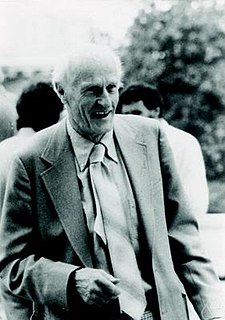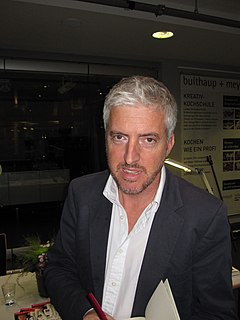A Quote by Stephen Cole Kleene
Well, I think Barkley and I were the only two who were working with Church for a Ph.D.
Related Quotes
After the Church of Jesus Christ of Latter-day Saints was organized, there were only two churches upon the earth. They were known respectively as the Church of the Lamb of God and Babylon. The various organizations which are called churches throughout Christendom, though differing in their creeds and organizations, have one common origin. They all belong to Babylon
We were fortunate at that time we were working with Virgin, and with Flood, probably more well-known as Brian Eno's engineer now and U2's producer, etc. Even though we weren't working in a strictly popular music area, which was great, we were lucky enough to work with people who were on the cusp of those sort of things.
The Church is always in trouble because the Church walks into the trouble in which mankind is trying to resolve itself. There are a lot of areas that need to be addressed. If we were perfect we wouldn't be the Church. I think it's the imperfections that allow people to trust that you're working (toward) something.
Education in my family was not merely emphasized, it was our raison d'être. Virtually all of our aunts and uncles had Ph.D.s in science or engineering, and it was taken for granted that the next generation of Chu's were to follow the family tradition. When the dust had settled, my two brothers and four cousins collected three MDs, four Ph.D.s and a law degree. I could manage only a single advanced degree.
When Benjamin Disraeli spoke of the 'two nations' in Britain he was perfectly right, only the working classes were not exactly a nation. But the gap in behavioral standards and in outlook, and of course in standards of living, were enormous. And in course of time, at least in countries such as Britain, the working classes more or less adopted and have become assimilated to the standards of the so-called 'gentle' classes. That is assimilation.The working class has hardly been able to govern, but they are no longer outsiders in relation to the state as they were before.
When you talk to women who were working as print journalists or in broadcasting in the '50s, and then you talk to women who were working in the late '60s, there's an enormous difference. There had already been a huge transition. Then, of course, you get well into the '70s and there were women with children working.
The advertising men made it clear that there were two ways of looking at ideas in a war against fascism. Those of us who were working on the project believed ideas were to be fought for; the advertising men believed they were to be sold. The audience, those at home in wartime, were not 'citizens' or 'people.' They were 'customers.'
And I think people who sort of glibly say, 'Well, you know, they're not going to handle security, UAE is a great ally,' four and a half years ago, they were not an ally, they were working with the enemy, and if those same people are still there today that were there then, these are real serious issues.





































